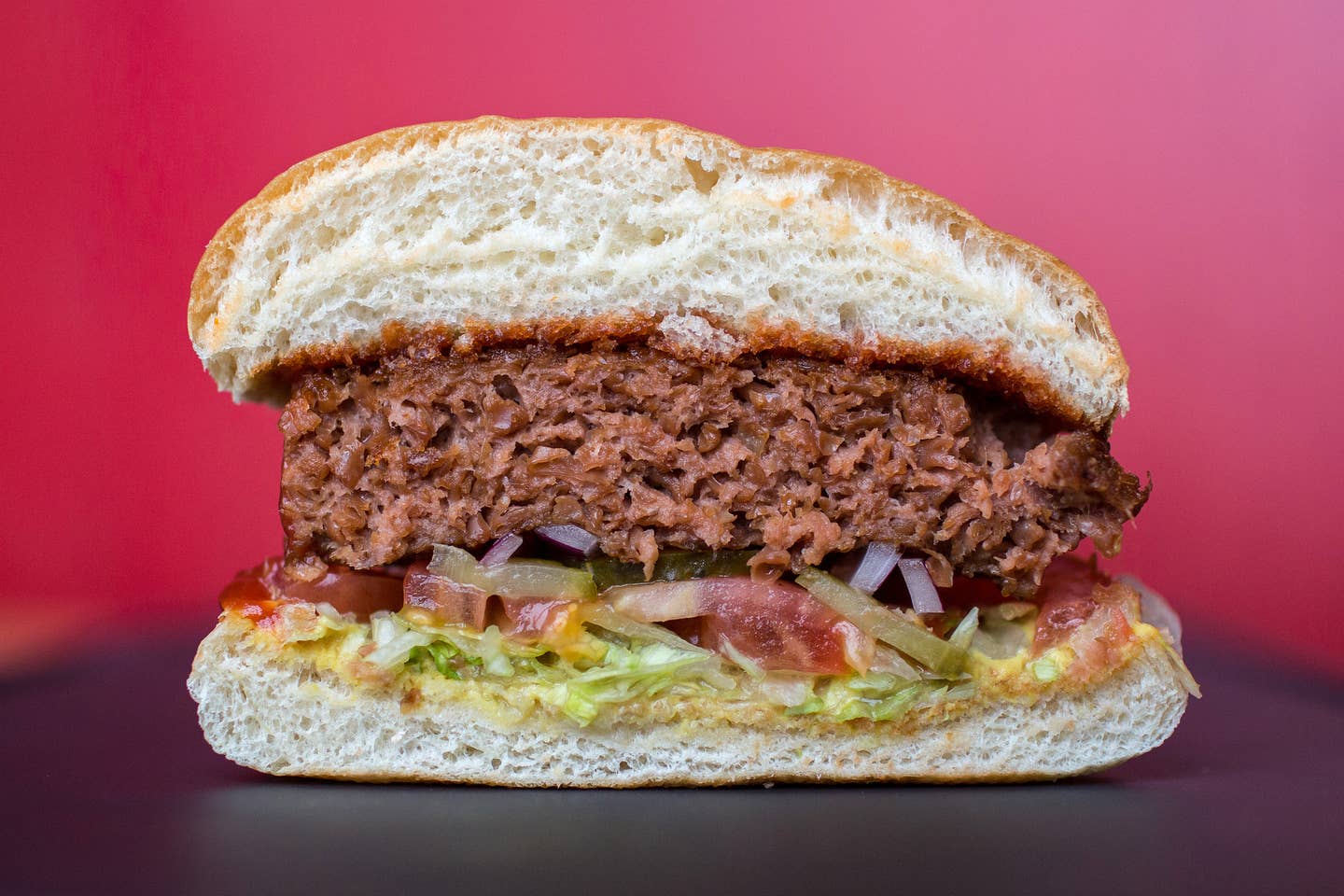
Carrageenan, a Common Ingredient in Vegan Food, May Be Bad For You
Eating plant-based doesn’t give you a pass on reading food labels, especially if your diet includes processed plant-based options. At The Beet, we recommend a whole-food, plant-based diet for health, but if you are eating something with a label, check to see that the first ingredient is something you could grow. Keep reading down to the end though, to find where the other additives are lurking. One ingredient that may have caught your eye in these products? Carrageenan. It’s a controversial food additive, and experts weigh in on whether you should–or shouldn’t– be eating it.
What is Carrageenan?
Carrageenan is an extract from a red seaweed called "Irish moss," making it vegan-friendly. After processing it with alkali, food manufacturers, including plant-based companies, add food-grade carrageenan to their products as a thickener, emulsifier, or stabilizer. “Carrageenan has a long history of being effective in improving the texture of processed foods without adding calories,” says Joanne Tobacman, M.D., associate professor of clinical medicine at the University of Illinois at Chicago College of Medicine. “It’s biologically reactive, available and not very expensive.”
Although you’ll find it in numerous animal-based products like processed meats and dairy products, you’ll also find it in plant-based products like plant milks, frozen non-dairy desserts, vegan creamers and some juices. “It’s popular in plant-based foods because it changes the mouthfeel of a product,” says Marie Burcham, J.D., director of domestic policy for The Cornucopia Institute in Viroqua, Wisconsin. And when added to beverages that require shaking or stirring, carrageenan can help eliminate that step.
While there are other ingredients like locust bean or guar gum that can be used in place of carrageenan, they come with their own problems. “Other gums may not be so readily accessible, they may be more expensive, or the texture of the finished food product may not be as appealing,” Tobacman says.
Is Carrageenan Safe?
It might seem odd to be questioning carrageenan’s safety. After all, it hails from a plant, which meant it’s natural, which means it should be safe, right? That depends on who you ask.
For years, carrageenan’s safety has been upheld by organizations like the Joint FAO/WHO Expert Committee on Food Additives, Health Canada, and the Food and Drug Administration (FDA). In fact, the FDA has rejected numerous calls to ban the additive, pointing to studies that haven’t linked carrageenan to negative health issues. “Carrageenan has been reviewed extensively in the literature, and over 40 years of research supports its safety as a food ingredient,” says Roger Clemens, DrPH, adjunct professor of pharmacology and pharmaceutical sciences and regulatory and quality sciences at the University of Southern California School of Pharmacy in Los Angeles. In fact, he feels so confident about its safety that he has no qualms giving his grandchildren products with carrageenan in them.
Yet others disagree, and in 2016, the Cornucopia Institute updated a previously published report on carrageenan, linking it to numerous health issues. According to the report, “animal studies and in-vitro studies with human cells have repeatedly shown that food-grade carrageenan causes gastrointestinal inflammation and higher rates of intestinal lesions, ulcerations and even malignant tumors.” The report goes on to say that 3,855 research papers demonstrate carrageenan’s inflammation-inducing property and notes that chronic inflammation can lead to more serious diseases like cancer.
Because it so predictably causes inflammation, carrageenan has actually been used for decades by labs to study inflammation, Tobacman says. “Inflammation can arise from the unusual chemical structure of carrageenan,” she says.
That may be why, when individuals remove carrageenan from their diet, they report that issues they’ve dealt with for years, including mild bloating to ulcerative colitis, dramatically improve, according to Cornucopia’s report. “Our role has generally been to educate consumers that carrageenan could be causing health issues, although some folks may not be affected to the degree that others are,” Burcham says.
Should You Eat or Avoid Carrageenan?
If you’re concerned about carrageenan, follow Tobacman’s advice and remove it from your diet. “I would advise consumers to avoid all products with carrageenan since it’s well-known to cause inflammation and can impact glucose metabolism and the intestinal microbiome, as well as other effects,” she says, adding that the amount of carrageenan in a specific food product or individual’s diet varies. Estimates of individual carrageenan intake have ranged up to several grams daily, depending on the number of carrageenan-containing foods consumed and serving size.
That will require reading food labels, even on organic products. Although the National Organic Standards Board voted to remove carrageenan from its list of approved substances for food products labeled “USDA Organic” in 2016, the USDA ruled in 2018 that organic food companies could keep using carrageenan. Fortunately, many of these companies have removed carrageenan because of customer complaints, Burcham says.
Of course, complete abstinence can be tough, especially if you’re dining out or have found a vegan food product you love. In this case, consider what Michael Greger, M.D., author of How Not to Diet and How to Survive a Pandemic and founder of NutriitonFacts.org wrote in 2014, calling carrageenan a “potential but unproven hazard.”
He notes in a video that if you have inflammatory bowel disease or other gastrointestinal problems, you could cut carrageenan to see if your symptoms improve. Otherwise, use concerns about carrageenan as motivation to avoid unhealthy foods (like vegan cheese) without cutting healthier foods (like organic soymilk).
More From The Beet






